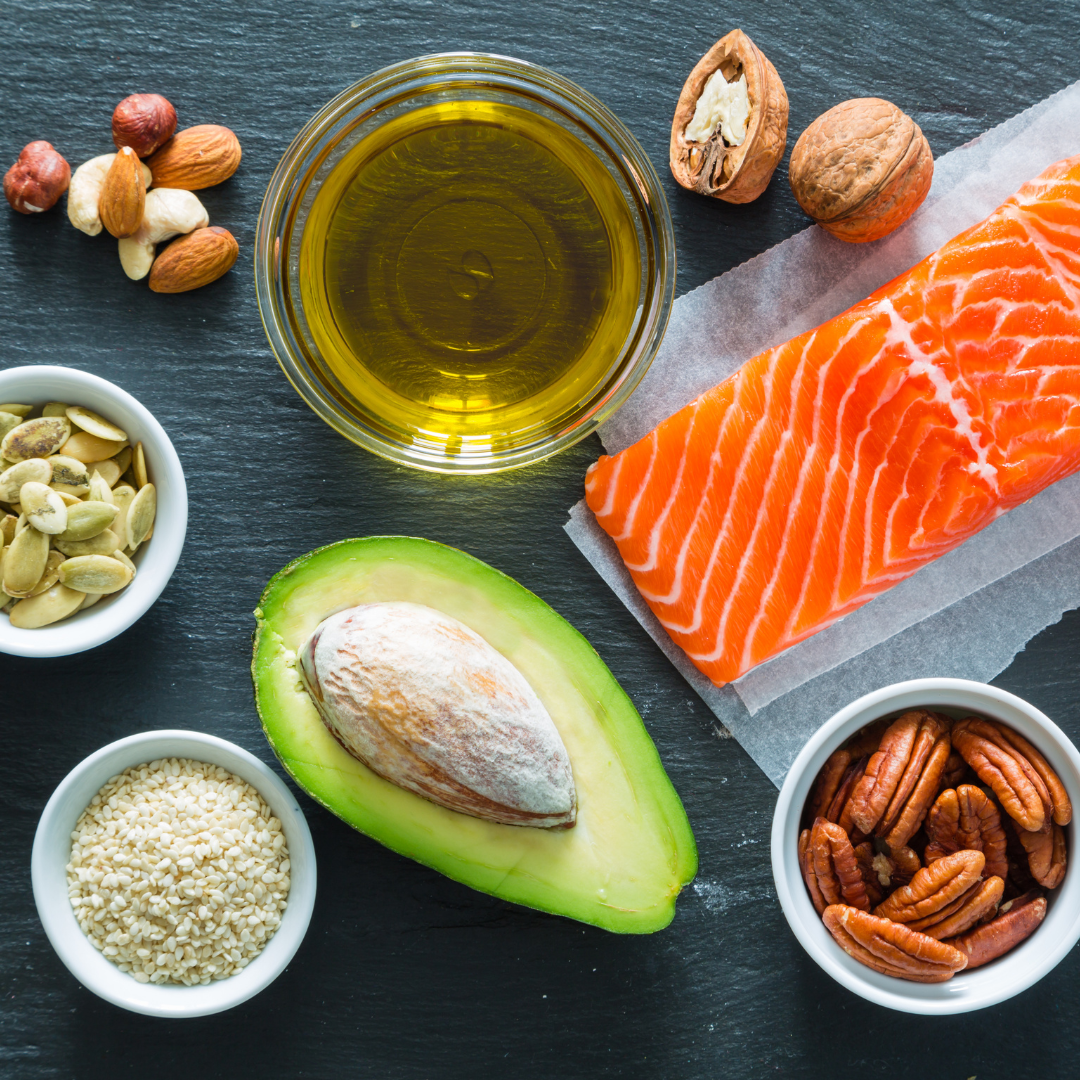Fat is one of the three macronutrients that provides our bodies with energy. We get it from animal sources and plant sources. Fat in our meals can have a few functions, from making our food taste good to helping us feel and stay full.
In our bodies, fat aids in the metabolism of fat-soluble vitamins (A, D, E, and K). Fats are also found in cell membranes and the structure of our brains. Adipose (fat tissue) helps to protect our organs and keep us warm. Fats also have a vital role in hormone production and function.

What are the different kinds of fats, and where do they come from?
- Saturated fat-
- Oils that are solid at room temperature, often from animal sources, like milk (butter, cheese, yogurt, etc), and meat products.
- Coconut oil, which is also solid at room temperature, is a plant source of saturated fat.
- Unsaturated fat - oils that are liquid at room temperature and come from mostly plant sources, but also fish, and are considered to be heart-healthy.
- Monounsaturated fats are found in
- Cooking oils, like olive, peanut, and canola
- Avocados
- Nuts
- Seeds
- Polyunsaturated fats are found in
- Oils, like sunflower, corn, soybean, canola, and flaxseed
- Walnuts
- Flax seeds
- Fish
- Monounsaturated fats are found in
How much fat should I consume?
Excess saturated fat, whether from plant or animal sources is known to contribute to the build-up of plaque in our arteries, which can lead to heart attacks and strokes. For this reason, we should limit the amount of saturated fat we consume each day to no more than 10% of our total daily calories, according to the Dietary Guidelines for Americans 2020-2025.
For a generally healthy individual, total fat may make up about 20-35% of total calories. Unsaturated fats can have beneficial effects in the body, supporting brain and heart health, improving blood cholesterol levels, and protecting against inflammation and oxidation.
Tips to limit saturated fat:
- Swap out butter for olive oil when cooking. Use an oil with a high smoke point, like avocado oil, when roasting.
- Purchase reduced-fat dairy products when possible.
- Select leaner meats, like chicken, turkey, and fish more often than beef and pork.
- When having beef or pork, opt for leaner cuts or higher percentage of lean in ground meats (85 or 90%).
- Swap out some proteins for plant-based options, like beans, legumes, nuts, and seeds.
This article is not intended for medical advice.
Article by guest author, Lydia Conner, RDN, LD
For advice that is specific to your lifestyle and body, schedule an appointment with one of our registered dietitians at our Collingswood, NJ location or online.
We have several specialties including women's health, family nutrition, medical nutrition therapy and eating disorder counseling. If you are not sure what you need, schedule a free consultation here so we can help you!
